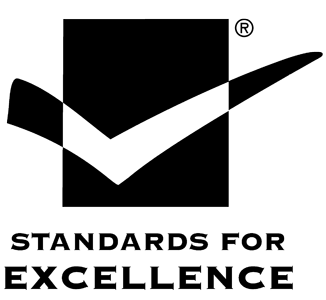FPS Family Health Education: Fifth Edition
For Pete’s Sake welcomes guest writers in the various areas of health related to our 7 Family Health Pillars.
This nutritional education series, written by Judith Elvira Tobal Betesh, BCHNN, IHHC, FNTP, relates to the Physical Health Pillar. Judith, who battled lymphoma, is an FPS Respite Recipient and traveled to Woodloch Resort with her husband.

“Healthy is an outfit that looks different on everybody.”
Continuing on with the “The Four Cornerstones Of Good Health.”
To review, the four cornerstones are:
- A positive mental attitude
- A healthful lifestyle: exercise, sleep, and health habits
- A health promoting bio individualized diet.
- Supplementary measures for nutrient deficiencies
We are continuing with the following nine principles that can help us get on the right path to a healthier you. These principles include:
- Eat a rainbow assortment of fruits and vegetables.
- Reduce exposure to pesticides, heavy metals, and food additives.
- Eat to support blood sugar control.
- Do not overconsume animal foods.
- Eat the right types of fats.
- Keep salt intake low, potassium intake high. Use sea salt /Celtic sea salt
- Avoid food additives.
- Take measures to reduce foodborne illness.
- Drink enough water each day with electrolytes.
Our second principle we will review today is how to reduce exposure to pesticides, heavy metals and food additives.
In the United States, more than 1.2 billion pounds of pesticides and herbicides are sprayed on or added to food crops each year. That is roughly 5 pounds of pesticides for each man, woman, and child. There is a growing concern that in addition to the significant number of cancers caused by the pesticides directly, exposure to these chemicals damages the body’s detoxification mechanisms. In turn, this raises the raises the risk of cancer and other diseases.
In order to illustrate just how problematic pesticides can be, take a quick look at the health problems of the farmer. The lifestyle of farmers is generally healthy. Compared with city dwellers, farmers have access to fresh food, they breathe clean air, work hard, and have a lower rate of cigarette smoking and alcohol use. Yet studies show that farmers have a higher risk of lymphomas, leukemias, and cancers of the stomach, prostate, brain, and skin. Unfortunately, exposure to pesticides may explain this phenomenon.
Perhaps the most problematic pesticides are the halogenated hydrocarbons such as DDE, PCB, PCP, dieldrin, and chlordane. These chemicals persist almost indefinitely in the environment. For example, a similar pesticide, DDT, has been banned for nearly 30 years, yet it can still be found in the soil and root vegetables such as carrots and potatoes.
What does that mean for our bodies? Our bodies have a tough time detoxifying and eliminating these compounds. Instead, they end up being stored in our fat cells. What’s more, inside the body these chemicals can act like the hormone estrogen. They are suspected of being a major cause of the growing epidemic of estrogen-related health problems, including breast cancer. Some evidence also suggests that these chemicals increase the risk of lymphomas, leukemia, and pancreatic cancer. They may also play a role in low sperm count and reduced fertility in men.
Avoiding pesticides is especially important for children of preschool age. Children are at greater risk for two reasons. They eat more food relative to body mass, and they consume more foods higher in pesticide residues, such as juices, fresh fruits, and vegetables.
A recent University of Washington study that analyzed levels of breakdown products of organophosphorus pesticides, a class of insecticides that disrupt the nervous system, were found in the urine of 89 urban and suburban children two to four years old. They found that concentrations of pesticide metabolites were six times lower in the children who ate organic fruits and vegetables than in those who ate conventional produce.
After conducting an analysis of USDA pesticide residue data for all pesticides for 1999 and 2000, Consumers Union warned parents of small children to limit or avoid conventionally grown foods known to have high pesticide residues. These include cantaloupe, green beans (canned or frozen), pears, strawberries, tomatoes (Mexican-grown), and winter squash. The University of Washington study also added apples to this list.
Unfortunately, pesticides are not the only concerning product entering our food supply. The EPA now maintains a list of the levels of herbicides, toxic metals including arsenic, cadmium, lead, and mercury, and even radionuclides in the foods we eat. The bottom line is that, just like pesticides, all these toxins increase our risk of almost every disease.
How to Avoid Toxins in the Diet
- Do not overconsume foods that tend to concentrate pesticides, such as animal fat, meat, eggs, cheese, and milk.
- Buy organic produce, which is grown without the aid of synthetic pesticides and fertilizers. Although less than 8% of the total produce in the United States is grown without pesticides, organic produce is widely available.
- Develop a good relationship with your local grocery store produce manager and explain your desire to reduce your exposure to pesticides, heavy metals, and waxes. You can ask what measures the store takes to ensure that toxin residues are within approved limits and where the store obtains its produce. It is helpful to make them aware that foreign produce is much more likely to contain excessive levels of pesticides as well as pesticides that have been banned in the United States.
- Try to buy local produce in season.
- Peeling off the skin or removing the outer layer of leaves of some produce may be all you need to reduce pesticide levels. The downside is that many of the nutritional benefits of fruits and vegetables are concentrated in the skin and outer layers. An alternative measure is to remove surface pesticide residues, waxes, fungicides, and fertilizers by soaking the item in a mild solution of additive-free soap such as Ivory or pure castile soap. All-natural, biodegradable vegetable cleansers are also available at most health food stores. To use, spray the food with the cleanser, gently scrub, and rinse. My absolute favorite way to clean my nonorganic produce is using Trader Joes Veggies wash or adding Apple Cider Vinegar and Baking soda to a bowl and submerging the veggies in the two and then rinsing well.
- Eat smaller, wild-caught fish rich in omega-3 fatty acids and avoid eating larger species and farmed fish except for tilapia. The best choices are sardines, anchovies, small mackerel, salmon, and small tuna.
The Environmental Working Group (EWG) “Dirty Dozen” gives out an annual list that ranks fruits and vegetables by what EWG deems to have dangerous amounts of pesticide residues and what would be safer to eat when not organic. Please see the current list below.
Remember you are what you eat, and you are what you absorb!
Stay tuned for the next issue sharing how to eat to support blood sugar control.
If you have any comments or questions, you can email me at Elvirasallnatural@gmail.com

 Judith Elvira Tobal is a Board-certified Holistic Health and Functional Nutrition Practitioner. Her mission is to empower each client to take control of their health and improve their well-being by making sustainable changes appropriate for their own individual lifestyle and needs. Personalized tailored options for nutritional counseling including but not limited to: weight-loss consultation, mindful eating counseling, anti-inflammatory diet recommendations, heart-healthy diet guidelines, navigating food allergies, women’s health, blood sugar regulation, nutrition for disease prevention, cleansing and elimination diet, healthy skin from the inside out, as well as healthy aging through nutritional protocols.
Judith Elvira Tobal is a Board-certified Holistic Health and Functional Nutrition Practitioner. Her mission is to empower each client to take control of their health and improve their well-being by making sustainable changes appropriate for their own individual lifestyle and needs. Personalized tailored options for nutritional counseling including but not limited to: weight-loss consultation, mindful eating counseling, anti-inflammatory diet recommendations, heart-healthy diet guidelines, navigating food allergies, women’s health, blood sugar regulation, nutrition for disease prevention, cleansing and elimination diet, healthy skin from the inside out, as well as healthy aging through nutritional protocols.
You can reach her at Elvirasallnatural@gmail.com, @elvirasallnatural or visit www.elvirasallnatural.com
Reliance on Information Posted
The information presented on or through the Website is made available solely for general information purposes. We do not warrant the accuracy, completeness or usefulness of this information. Any reliance you place on such information is strictly at your own risk. We disclaim all liability and responsibility arising from any reliance placed on such materials by you or any other visitor to the Website, or by anyone who may be informed of any of its contents.








